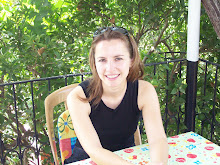There's nothing like learning a language to make you realize the extent to which you take your own, native language for granted. The absolute ease with which I use English, the way I don't even have to think in many cases about how to say something or what to say, is a testament to how fundamentally a part of us that language is. And of course this is all in stark juxtaposition to how hyper-aware one is of every aspect of the language one is learning.
And so I've been struck by how full of sayings Turkish is. English surely is as well, but my learner's vantage point of Turkish has given me objectivity, a certain distance from the language, and has allowed me to make certain observations.
For example, one absolutely must say ''hoş geldin,'' when someone arrives in your home. Or your store. Or at your table in a restaurant. Or even just joins a group of people standing at a cocktail party. In English, I don't think I've ever said ''welcome'' out loud. It's only ever written on large signs as you enter towns, isn't it?
As a new learner of Turkish, I very quickly learned the above-mentioned hoş geldin and its response, hoş bulduk. I also learned kolay gelsin, said to one who is working and which literally translates as 'may it come easily.' Soon after, I learned geçmiş olsun, 'may it pass,' said to someone who is ill and is the equivalent of the English 'get well soon.' One of the more interesting phrases I learned is gözün aydın, said instead of 'congratulations' when the cause for celebration is the return or arrival of someone or something. This last expression literally means, 'may your eyes shine,' and I suppose refers to the tears of joy one might shed on such occasions. Ellerine sağlık, wishing health to the hands of the person who has prepared a meal or done some other task for you, is a particularly lovely saying.
But not using the above phrases when called for, or saying something different, inevitably raises eyebrows, taking me back to my initial observation -- whereas in English you might welcome dinner guests into your home with any number of ways, in Turkish, you will say hoş geldin. End of story.
Which brings me to my next point, namely how much the Turkish language reveals about Turkish culture. Nothing new, I know. But surprisingly the reverse is likewise true -- the lackof certain expressions in English reveals something as well.




No comments:
Post a Comment